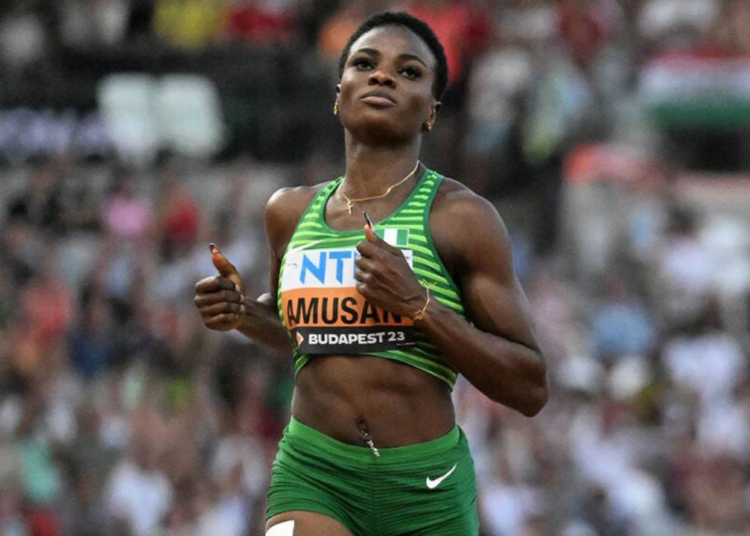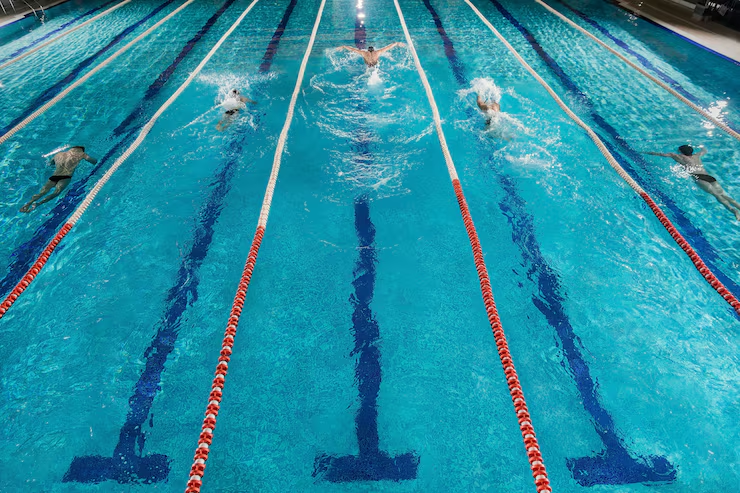While Team Nigeria are yet to make any meaningful presence at the ongoing Paris 2024 Olympics, the country has sadly found itself in an embarrassing show of shame but avoidable situation, with the crisis surrounding the team’s kit becoming a major distraction for Nigeria’s athletes at the Games.
After the embarrassment of omitting Nigeria’s national champion in the women’s 100-meter sprint, Favour Ofili, from the race at the Paris Games, the continued dispute between the Ministry of Sports and Nigeria Olympic Committee (NOC) over their official kits raised questions about the country’s sports governance.
The controversy erupted when it became evident that some Nigerian athletes were competing in kits that deviated significantly from the official attire unveiled by the Ministry. The NOC’s decision to procure alternative kits has ignited a public feud, with accusations of sabotage flying between the Ministry and NOC officials.
In a statement, the Federal Ministry of Sports Development attempted to clear the air regarding the so-called “two kits” debacle, saying there is no crisis and that all the athletes are fully equipped.
The declaration comes amid reports suggesting otherwise, with claims of disorganization and mismanagement casting a shadow over Team Nigeria’s participation in Paris.
The Ministry has insisted that the NOC’s actions were to undermine the government’s efforts to present a united front. The provision of a consistent kit, they contend, is essential for national unity and pride.
On the other hand, the NOC has defended its position, claiming that the alternative kits were necessary to ensure the comfort and performance of athletes. They have also suggested that the Ministry’s kit was inadequate in certain respects. According to savidnews.com’s report, the controversy started when the Nigeria Olympic Committee (NOC) accepted a donation of 200 kits from a brand named Actively Black.
This donation, meant to support the athletes, was reportedly received without any formal agreement involving the Sports Ministry.
Sports development minister, Senator John Owan-Enoh, insisted that the ministry was not informed of any conditions attached to the donation, a statement that raises questions about communication and coordination within the NOC and the Ministry.
Beyond the public spat, the kit crisis highlights the lack of coordination and cooperation between key sports managers in the country, a recurring problem that has hampered the country’s performance on the international stage.
Instead of focusing on preparing athletes for podium performances, administrators are brawling over kits, obviously for personal gains rather than the nation’s collective pride. This explained why the country’s national champion in the women’s 100-meter sprint won’t run the race at the Paris Olympics because her country’s track federation didn’t enter her into the field.
Senator Enoh admitted that 200 kits would not suffice for over 100 athletes, their coaches, technical crew, and other stakeholders. In response, the ministry partnered with PEAK to provide additional kits, unveiling them to the public on July 8, 2024. However, the timing and nature of this intervention have sparked concerns about the ministry’s planning and responsiveness.
In a sporting event where national pride and unity are paramount, the kitting controversy has unfortunately become a symbol of administrative inefficiency. As Team Nigeria competes on the global stage, the unresolved issues and negative press could impact the athletes’ morale and focus.
Therefore, it is imperative that the NOC and the Ministry put aside their differences and work towards a resolution that prioritizes the interests of the athletes and the team that is well-supported and focused on achieving excellence.






